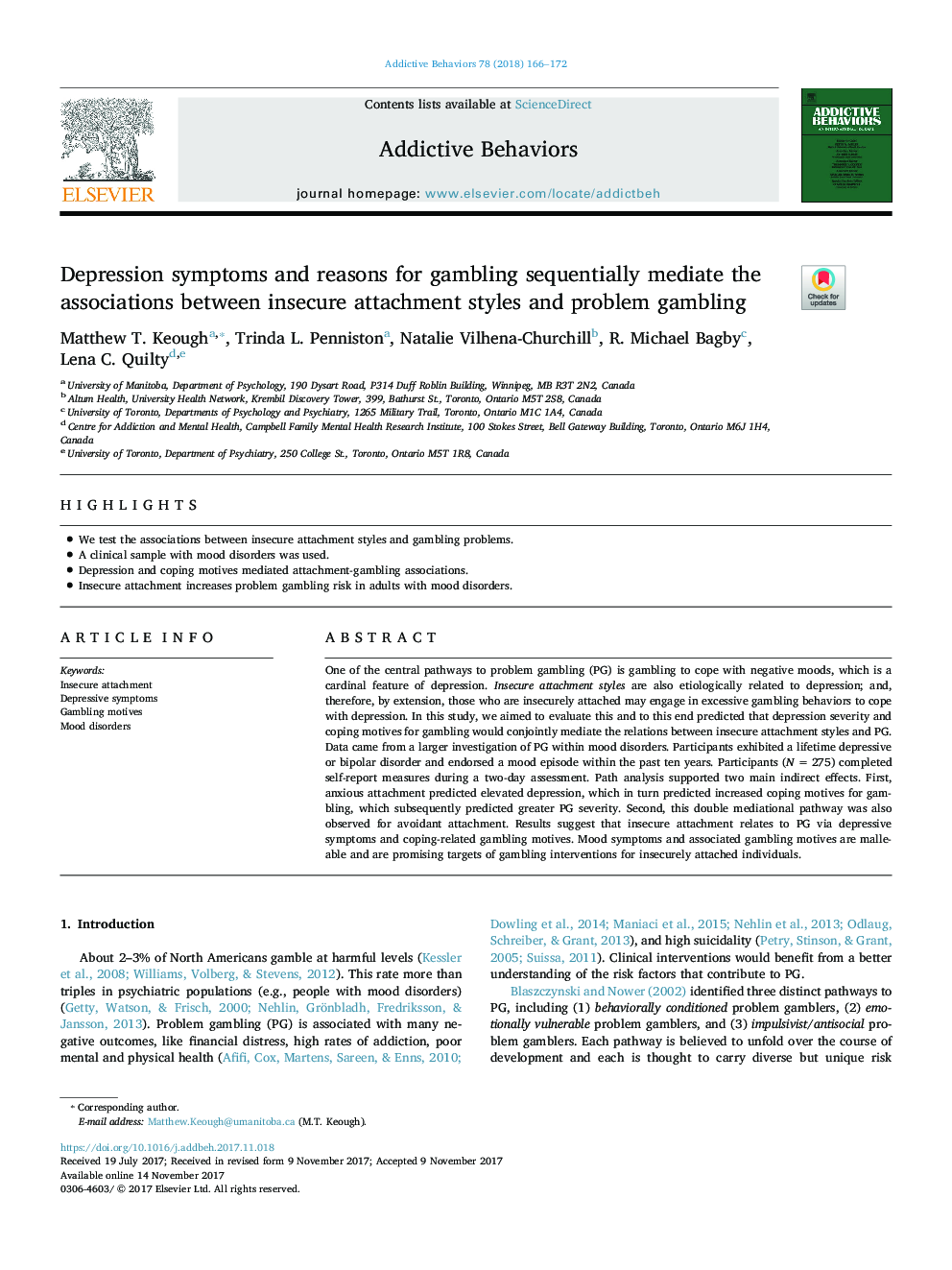| Article ID | Journal | Published Year | Pages | File Type |
|---|---|---|---|---|
| 7259519 | Addictive Behaviors | 2018 | 7 Pages |
Abstract
One of the central pathways to problem gambling (PG) is gambling to cope with negative moods, which is a cardinal feature of depression. Insecure attachment styles are also etiologically related to depression; and, therefore, by extension, those who are insecurely attached may engage in excessive gambling behaviors to cope with depression. In this study, we aimed to evaluate this and to this end predicted that depression severity and coping motives for gambling would conjointly mediate the relations between insecure attachment styles and PG. Data came from a larger investigation of PG within mood disorders. Participants exhibited a lifetime depressive or bipolar disorder and endorsed a mood episode within the past ten years. Participants (NÂ =Â 275) completed self-report measures during a two-day assessment. Path analysis supported two main indirect effects. First, anxious attachment predicted elevated depression, which in turn predicted increased coping motives for gambling, which subsequently predicted greater PG severity. Second, this double mediational pathway was also observed for avoidant attachment. Results suggest that insecure attachment relates to PG via depressive symptoms and coping-related gambling motives. Mood symptoms and associated gambling motives are malleable and are promising targets of gambling interventions for insecurely attached individuals.
Related Topics
Life Sciences
Neuroscience
Behavioral Neuroscience
Authors
Matthew T. Keough, Trinda L. Penniston, Natalie Vilhena-Churchill, R. Michael Bagby, Lena C. Quilty,
